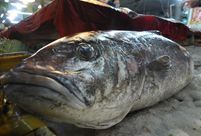 Army aviation: Adding wings to infantry
Army aviation: Adding wings to infantry
 Old photos of Chinese President Xi Jinping’s father and his families
Old photos of Chinese President Xi Jinping’s father and his families
 Bikini show in 2014 China Final of Miss Tourism World
Bikini show in 2014 China Final of Miss Tourism World
 Close-up view of August Aerobatic Team
Close-up view of August Aerobatic Team
 Goddesses married in 2014
Goddesses married in 2014
 Polar region photos raise worldwide awareness of global warming
Polar region photos raise worldwide awareness of global warming
 Get off at the last stop — Beijing Subway in vision
Get off at the last stop — Beijing Subway in vision
 Top 100 beauties in the world!
Top 100 beauties in the world!
 Gallery: Who is the most beautiful one?
Gallery: Who is the most beautiful one?
 If you like autumn, put your hands in the air!
If you like autumn, put your hands in the air!
BEIJING, Dec. 31 -- As the year ends, a book--Xi Jinping: the Governance of China--has won wide popularity in both China and abroad.
Its readers include prominent figures such as Facebook founder Mark Zuckerberg and American scholar Thomas S. Kuhn. Former German Chancellor Helmut Schmidt has even written a review.
There are good reasons for the book getting such huge attention: the book apparently contains the profound thoughts of Chinese President Xi Jinping, who is determined to bring about the great rejuvenation of Chinese nation.
And the world is so curious about how the Communist Party of China (CPC) with 86 million members leads the world's most populous country to realize the Chinese Dream.
A NEW ERA HAS COME
China observers said the country has now entered a new era marked by strong-willed and well-planned reform,iron-handed anti-corruption efforts and more active diplomatic policies.
Prof. Zheng Yongnian, director of the East Asia Institute of National University of Singapore said the Chinese leadership has formed a new reform model, featuring clear top-level design and the determination of overcoming vested interests.
The year 2014 was the first whole year of comprehensively deepened reform laid out at a key meeting of the Communist Party of China (CPC) in November 2013.
The leading group for overall reform, led by Xi, convened eight times in 2014.
Eighty key reform tasks identified for 2014 had been "basically finished".
China in this year delegated and called off hundreds of items of administrative examinations and approvals. A new round of urbanization drive was launched, along with the reform of the income distribution system and the household registration system. Foreign media said China's reform went "beyond expectations".
Another characteristic of the leadership, as observers noted, is its quickness in adapting to changes, especially in the economic development.
On the Asia Pacific Economic Cooperation Economic Leaders' Meeting in Beijing in November, Xi explained the "New Normal" of the Chinese economy: from high-speed growth to medium and high-speed growth, with continuously optimized economic structure, and from factors and investment-driven to innovation-driven.
Signs of the "New Normal" have emerged. In the first half of the year, growth rate of services sector surpassed that of the manufacturing industry, a significant change in structural adjustment and transformation. Among the top-10 China rich list issued by Hurun, or Rupert Hoogewerf, five persons are from IT industry, and the richest was no longer from real estate.
In addition, Xi and the leadership have taken great efforts to address rampant corruption, which they believe may threaten the very survival of the Party and the state.
In this year, a number of top officials, both in service and retired, have been investigated, including Zhou Yongkang, Xu Caihou, Ling Jihua and Su Rong.
Since the leadership transition in late 2012, tens of ministerial level officials have been investigated or punished in accordance with law. The anti-graft authority in the first half of this year punished over 84,000 officials, a 30 percent increase year-on-year.
China also launched the Fox Hunt campaign this year to capture officials who are suspected of economic crimes and escaped overseas.
The over one-year-long "Mass Line" campaign ended in October. The campaign was aimed at rectifying undesirable work styles, including formalism, bureaucratism, hedonism and extravagance.
Two years after the "eight-point regulation" was put forward, spendings by government bodies have dramatically dropped, and an atmosphere of thrifty life and work styles is becoming popular.
Zhou Weimin, professor of the Party School of the CPC Central Committee, believes the newly purified atmosphere in officialdom has influenced the whole social ambience.
The spirit of the "mass line" campaign, one of the primary devices that led the Party to success in revolution, will never end.
Xi went to ordinary people's houses, villages and primary schools, learning the real situation in the grassroots. And central government spending on welfare has increased this year.
 |
 Tempting Yunnan cuisine
Tempting Yunnan cuisine Joint anti-piracy drill
Joint anti-piracy drill PLA conducts tactical drill in Tibet
PLA conducts tactical drill in Tibet Beautiful Chinese woman
Beautiful Chinese woman Chestnut girl goes viral online
Chestnut girl goes viral online Time travel photos become a hit in military academies
Time travel photos become a hit in military academies Unknown 'monster' fish caught in Shandong
Unknown 'monster' fish caught in Shandong 20 years on: Relocated Three Gorges residents through lens
20 years on: Relocated Three Gorges residents through lens PLA HK Garrison veterans leave behind beautiful smiles
PLA HK Garrison veterans leave behind beautiful smiles Occupational fatigue
Occupational fatigue A year of challenges and hope
A year of challenges and hope Orphans find musical refuge
Orphans find musical refuge The legacies of 2014 will long linger
The legacies of 2014 will long lingerDay|Week|Month